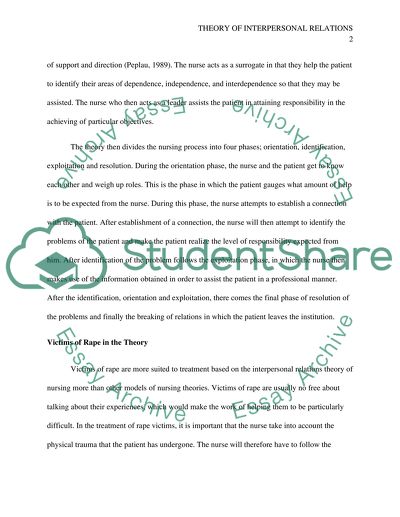Cite this document
(“Theory of Interpersonal Relations / Hildegard Peplau Research Paper”, n.d.)
Retrieved from https://studentshare.org/nursing/1436544-theory-of-interpersonal-relations-hildegard-peplau
Retrieved from https://studentshare.org/nursing/1436544-theory-of-interpersonal-relations-hildegard-peplau
(Theory of Interpersonal Relations / Hildegard Peplau Research Paper)
https://studentshare.org/nursing/1436544-theory-of-interpersonal-relations-hildegard-peplau.
https://studentshare.org/nursing/1436544-theory-of-interpersonal-relations-hildegard-peplau.
“Theory of Interpersonal Relations / Hildegard Peplau Research Paper”, n.d. https://studentshare.org/nursing/1436544-theory-of-interpersonal-relations-hildegard-peplau.


